
by: SEO Strategist
Ashot Nanayan
Ashot Nanayan is the CEO and Founder of DWI and a seasoned SEO strategist. With a proven track record of...
All Articles by Ashot Nanayan
February 2, 2025
5 min read
Artificial Intelligence is rewriting the rules of how we rank and search. If you’re not paying attention to how AI is influencing SEO, you’re already falling behind. From automated keyword research to AI-generated articles, images, and videos, companies are increasingly using AI to speed up their SEO efforts.
SEO is no longer solely about optimizing for traditional search engines like Google. Marketers must also consider AI-driven platforms such as ChatGPT, DeepSeek, and Perplexity.
In this post, we’ll unpack some truly eye-opening AI SEO statistics that will make you rethink everything you thought you knew about search optimization. Whether you’re a marketer, content creator, or business owner, these insights will give you a fresh perspective.
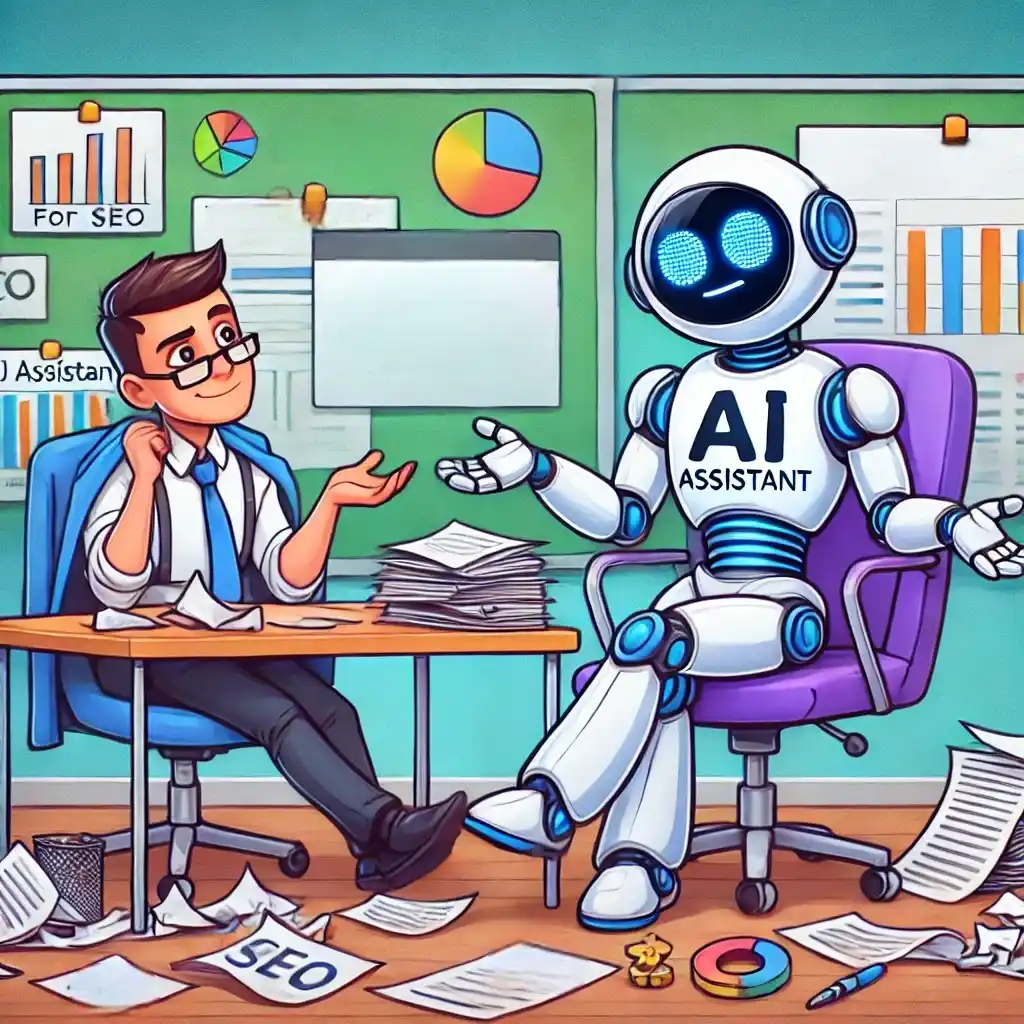
74% of SEO professionals have integrated at least one AI-powered tool into their workflow in the past 12 months.
4 in 5 marketers believe AI is the most transformative technology for SEO since the introduction of mobile-first indexing.
65% of enterprise-level websites rely on AI-driven analysis to prioritize their SEO tasks on a weekly basis.
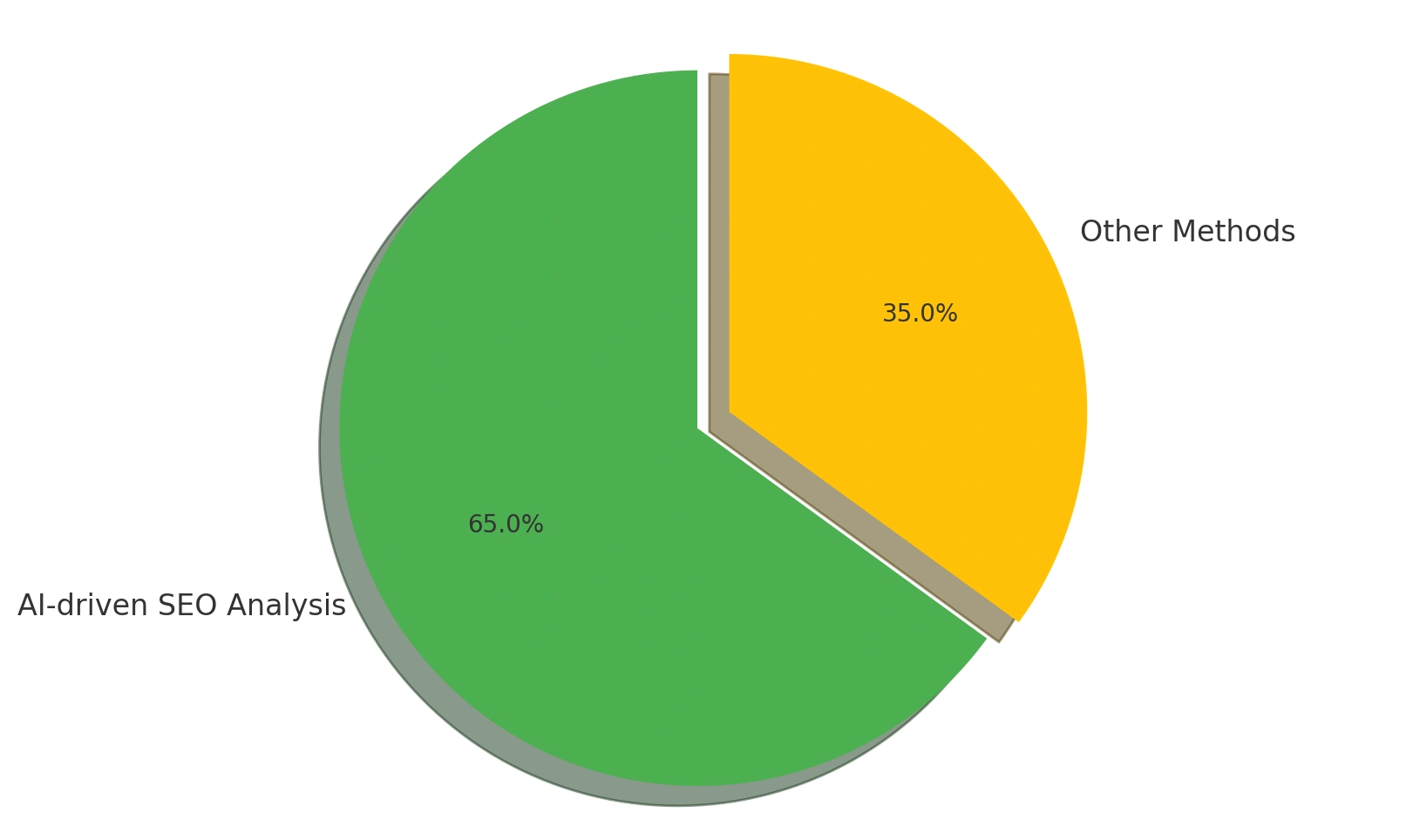
By 2026, 90% of top-ranking pages are projected to use some form of machine learning for content optimization.
AI-based SEO adoption is growing at an annual rate of 28%, outpacing traditional SEO tool adoption by more than double.
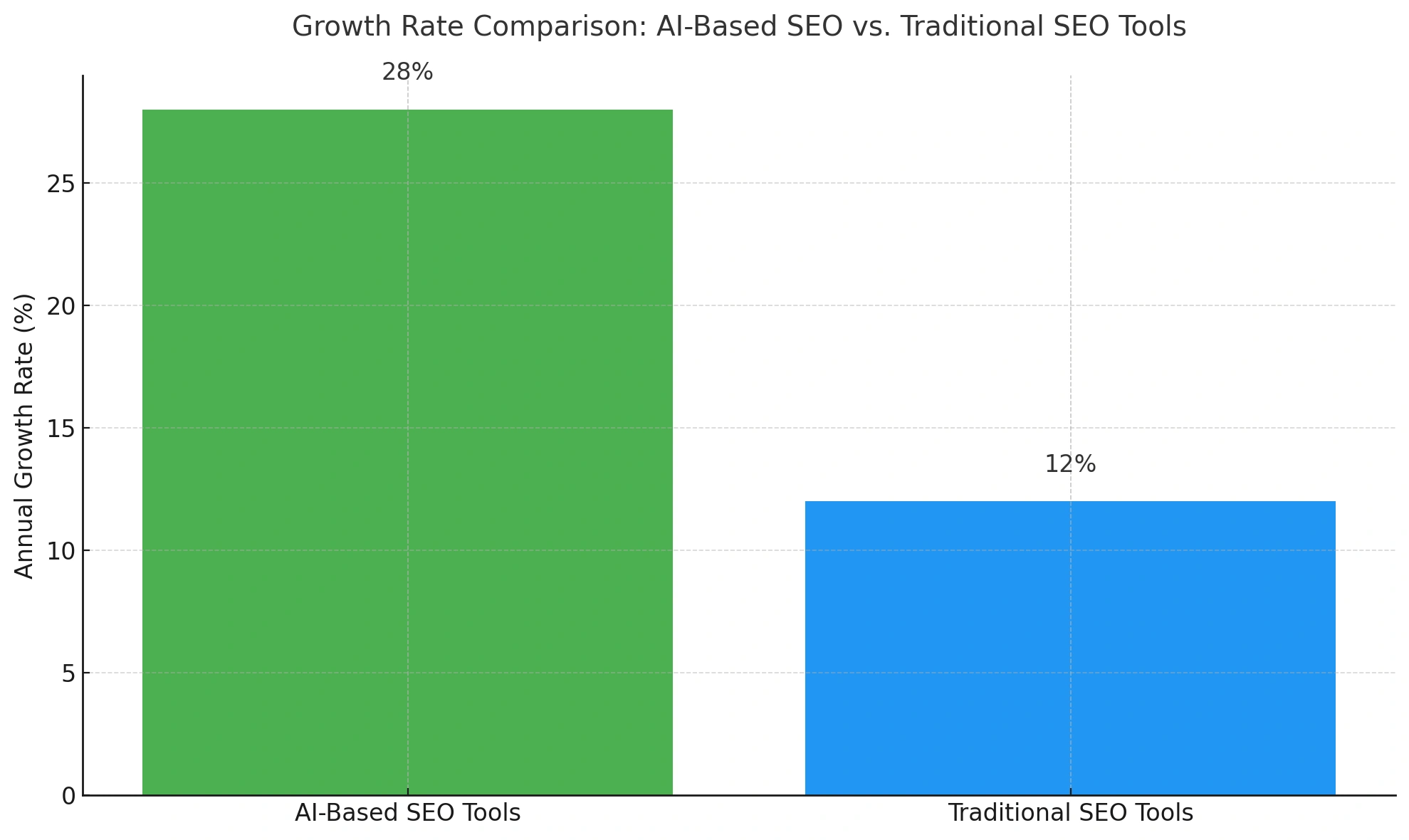
27% of B2B SaaS companies consider AI-driven SEO as their top inbound marketing strategy for 2025.
71% of digital marketers indicate AI’s predictive analytics has significantly reduced guesswork in their SEO campaigns.
Global spending on AI-powered SEO solutions is expected to hit $15 billion by 2027.
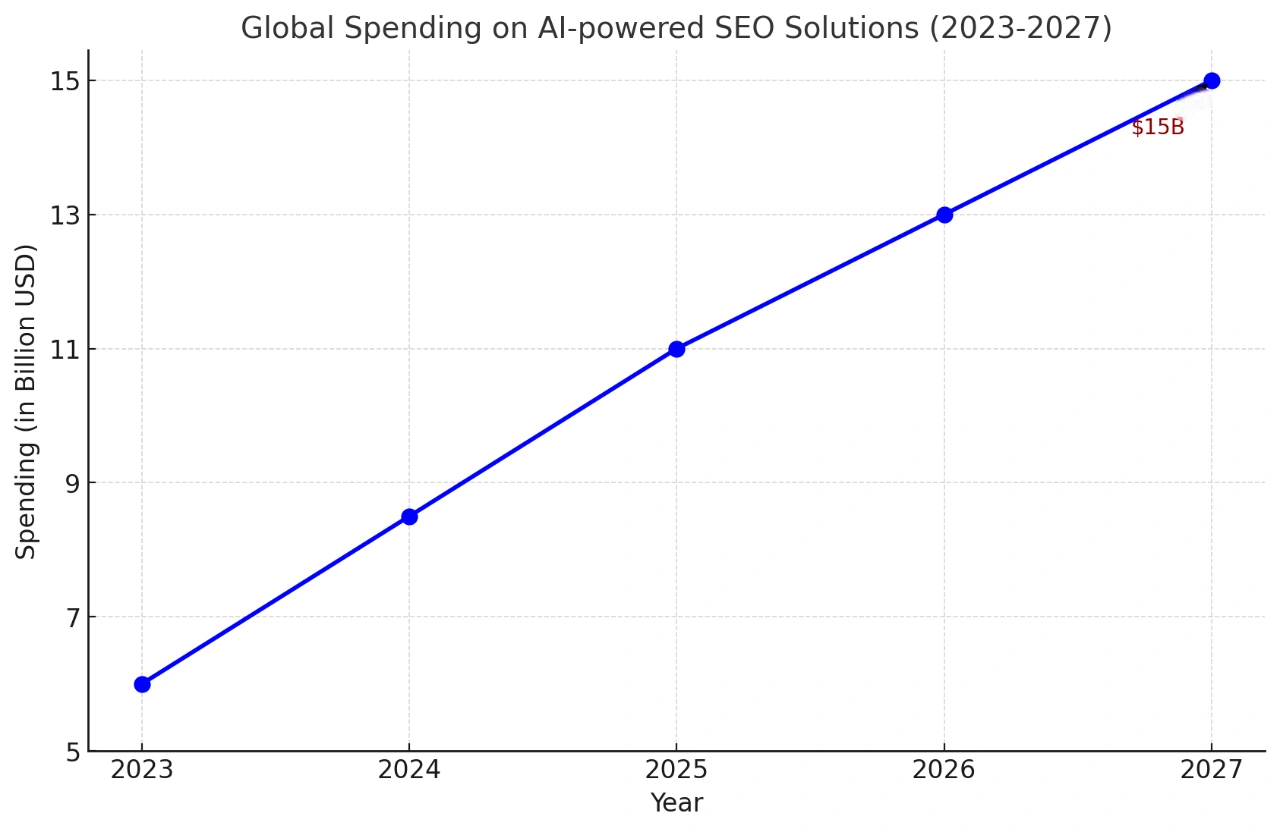
85% of eCommerce sites use AI-generated meta descriptions or product descriptions to improve their visibility.
94% of marketers who use AI-driven SEO tracking say it has helped them identify missed ranking opportunities within a single quarter.
AI is recognized as the main “game-changer” in search marketing among 78% of SEO conference speakers.
Within 3 years, 8 in 10 SEO roles are expected to require proficiency in at least one AI-based optimization platform.
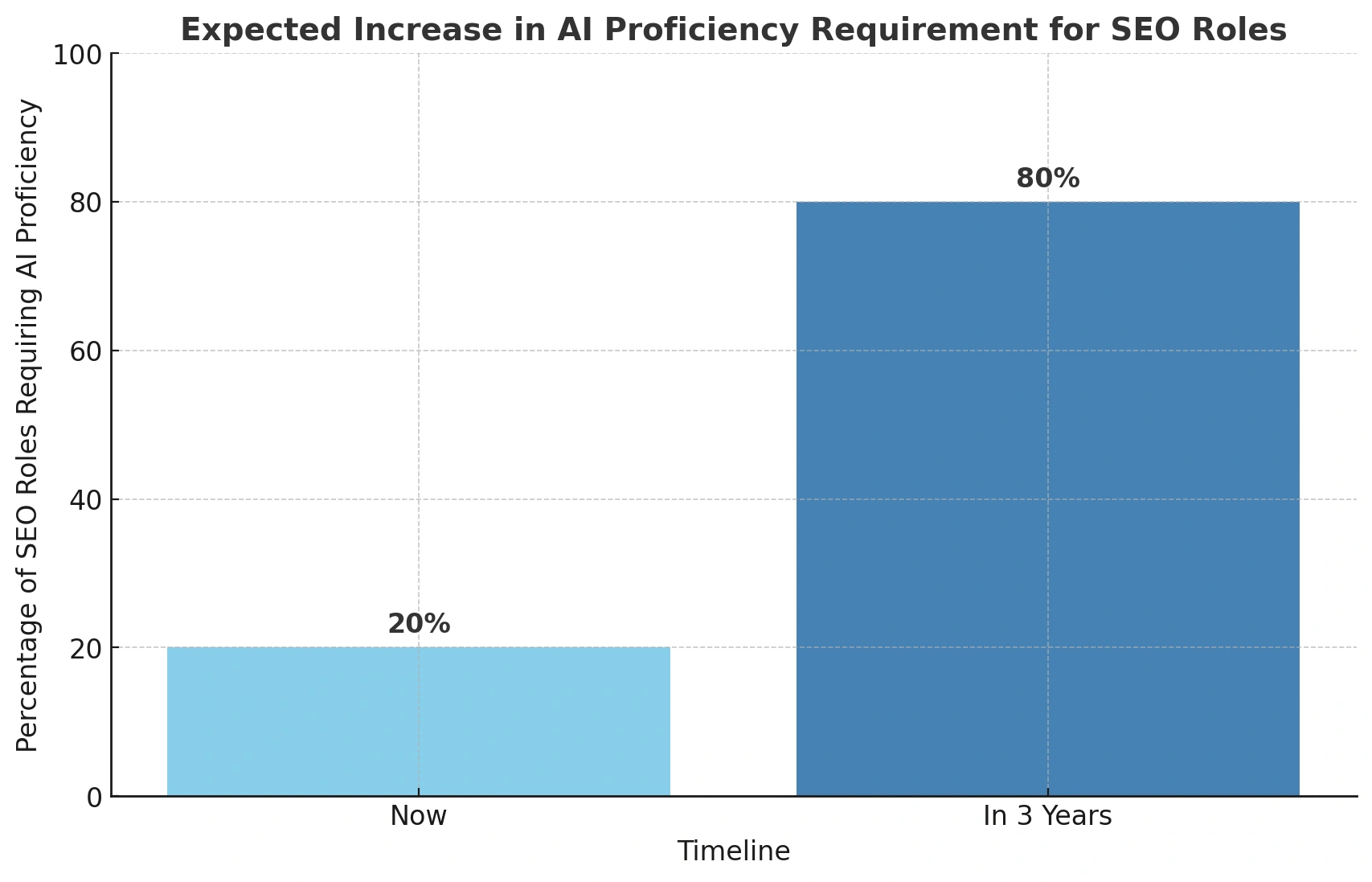
AI keyword research tools can reduce the time spent on keyword selection by 65% compared to manual methods.
63% of high-traffic blogs say AI-based keyword suggestions helped them discover 40% of their top-performing keywords.
Brands using AI-driven long-tail keyword analysis see a 1.8x boost in organic traffic versus those relying on static keyword lists.
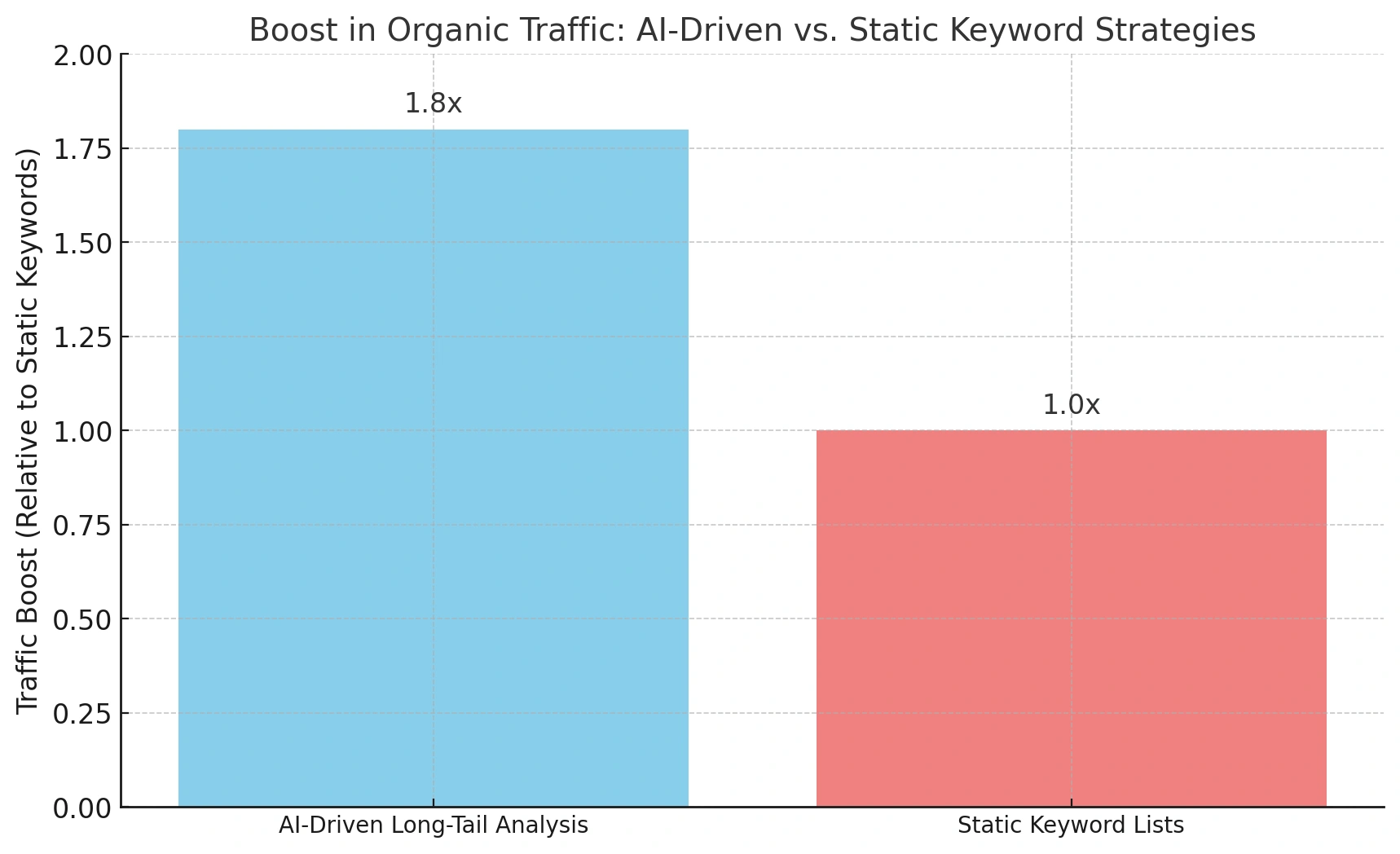
Over 45% of SEO experts claim machine learning has uncovered profitable keywords they would have otherwise missed.
48% of content strategists consider AI-based semantically related keyword generation as an “important” feature in their SEO toolkit.
59% of online retailers use AI-driven keyword clustering to refine product category pages, resulting in a 15% lift in SERP ranking.
AI can analyze over 2 million keywords per minute, offering immediate insights into competitive gaps and opportunities.
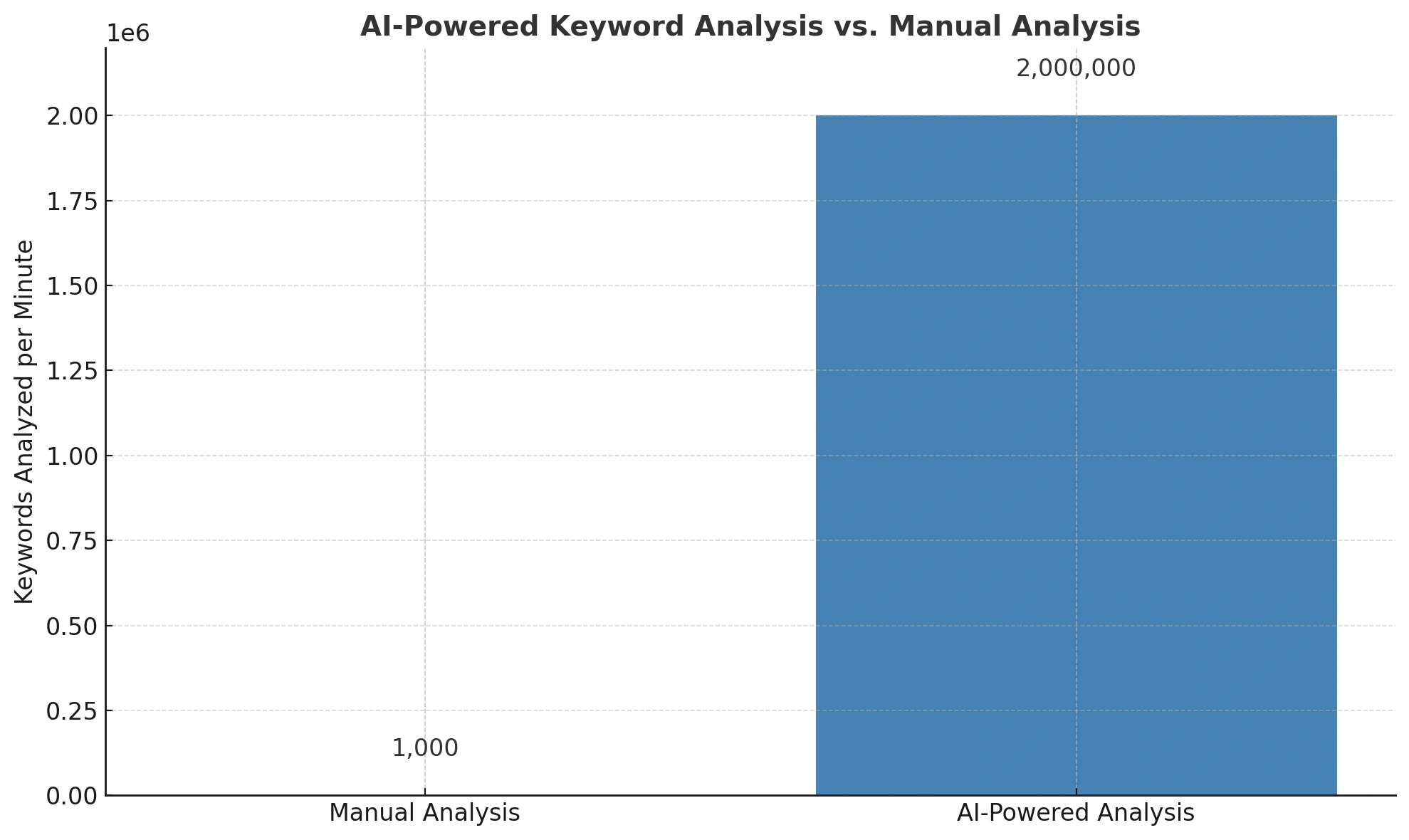
AI-based language models can generate up to 3 variations of keyword sets per piece of content to target multiple SERP features.
Automated keyword grouping with AI shortens the typical SEO research phase from an average of 3 days to 1 day for large agencies.
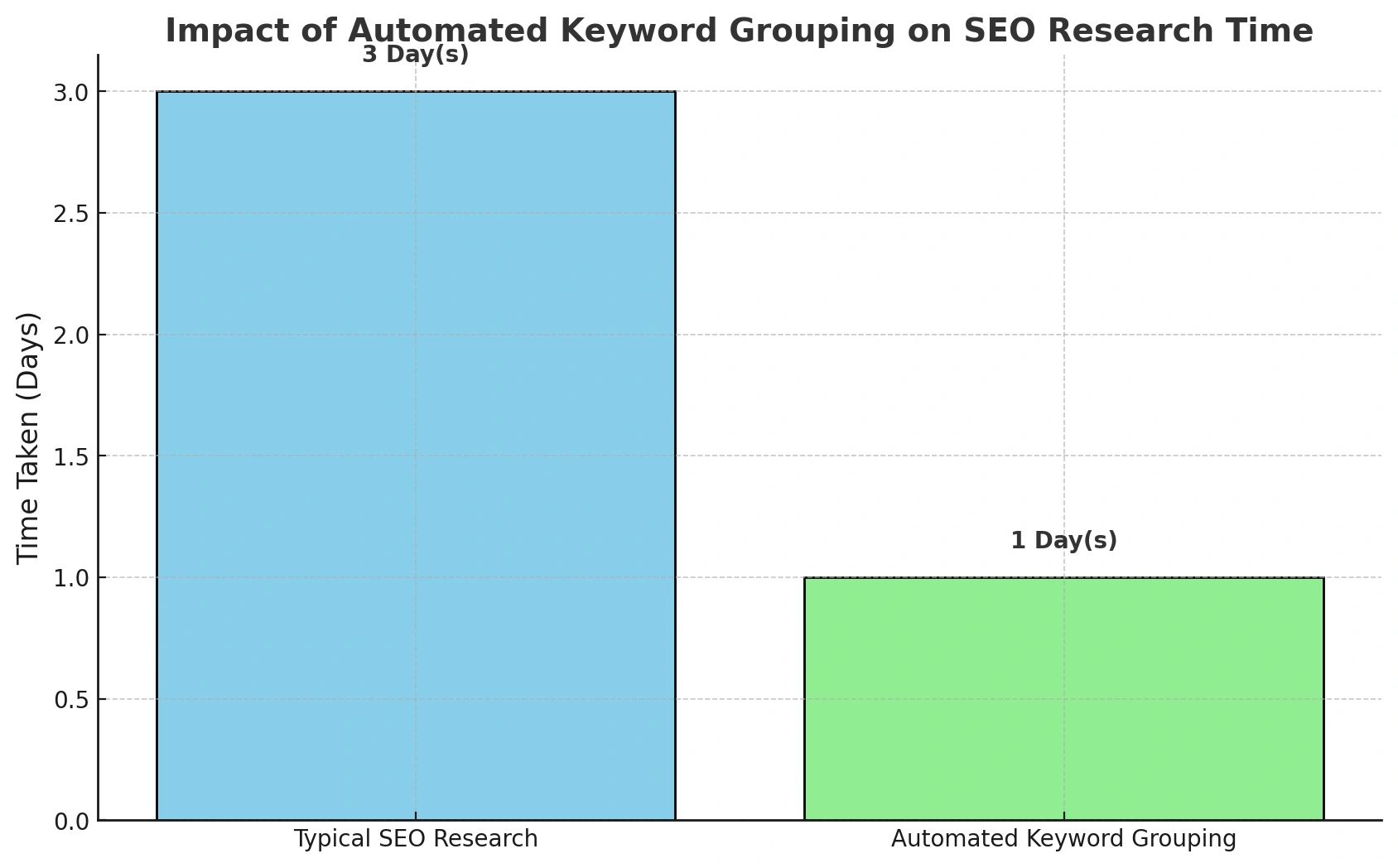
89% of digital publishers say AI content optimization tools help them maintain consistent brand voice across all online channels.
AI-assisted content ranks 23% faster on average than purely human-written content without machine insights.
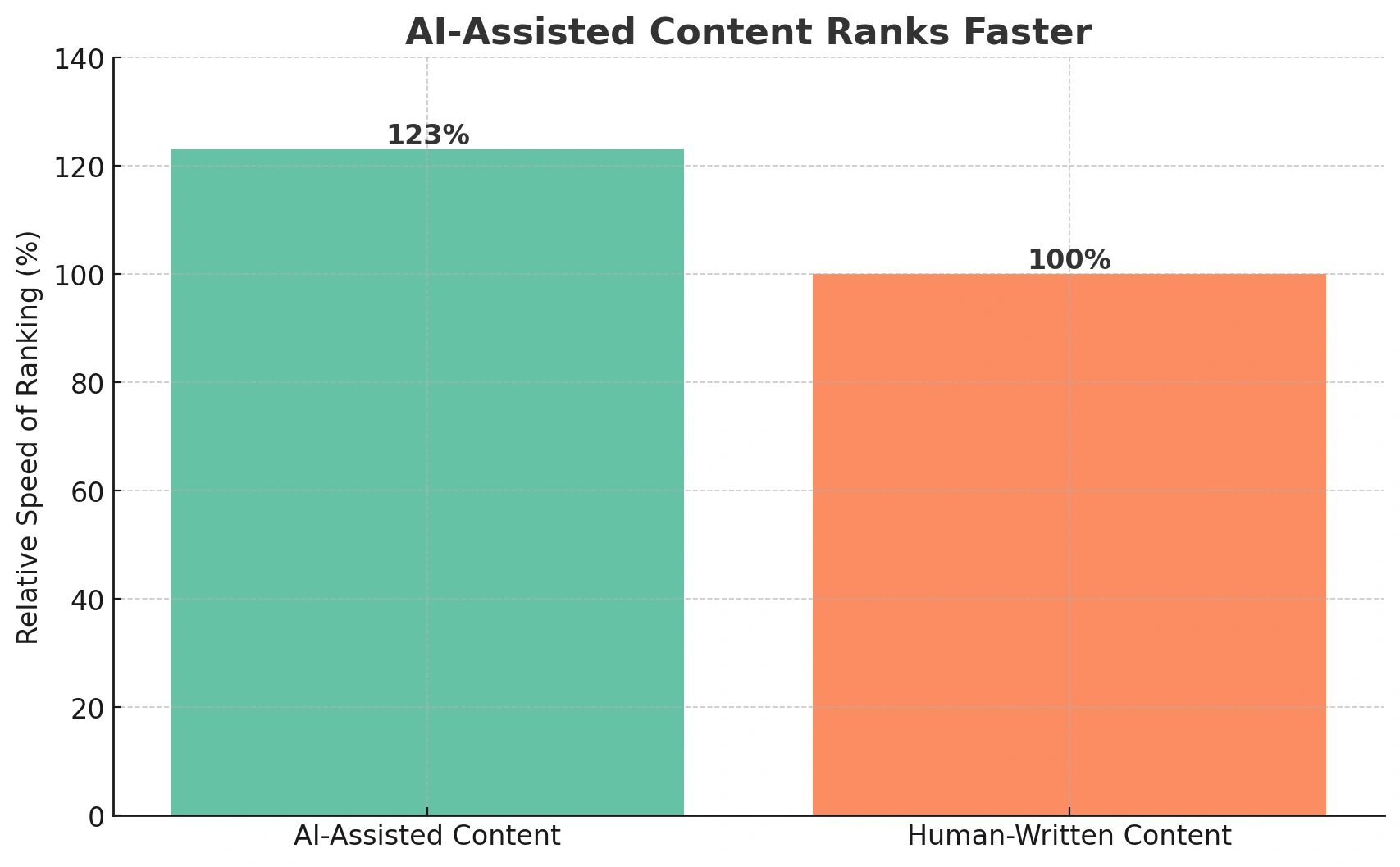
53% of bloggers using AI to optimize headings and subheadings report a doubled increase in “Featured Snippet” placements.
Machine-generated outlines shorten the average content creation timeline by 40%, enabling marketers to publish faster.
AI-based on-page optimization can identify up to 85% of missing SEO elements like alt texts, meta tags, and internal links.
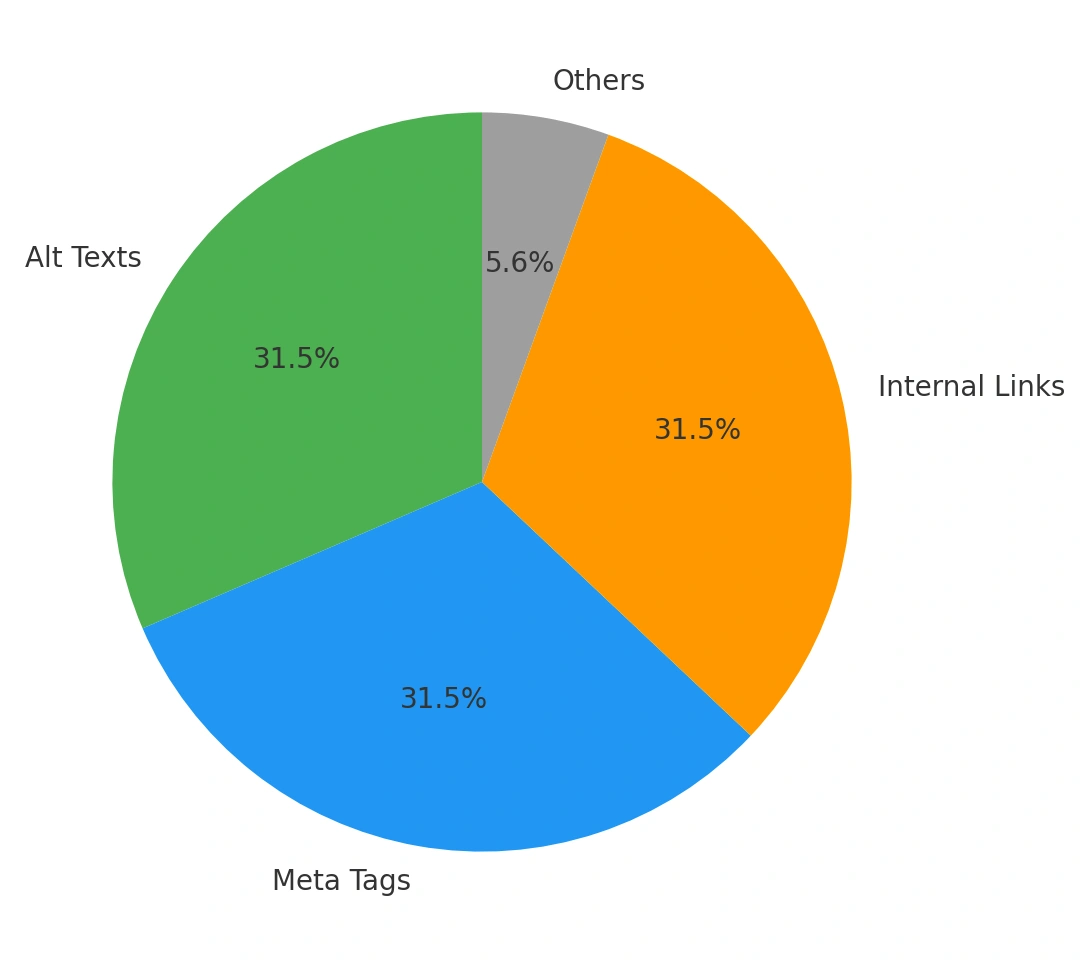
Over 60% of marketers highlight AI-suggested content structures as a critical factor in capturing high-intent search traffic.
In a six-month study of 10,000 websites, AI-optimized titles had a 12% higher click-through rate (CTR) than manually optimized titles.
AI-driven FAQ sections can improve page dwell time by 28%, as they address user queries more precisely.
Natural language processing (NLP) helps 7 in 10 websites better match user intent, leading to lower bounce rates and higher SERP rankings.
66% of top publishers use AI for their strategic use of headings (H2/H3) which led to a 20% improvement in long-tail keyword rankings.
AI content scoring systems provide real-time feedback to writers, increasing the chance of ranking on the first page by 35%.
Voice search-optimized content driven by AI has a 16% higher conversion rate compared to content not customized for voice queries.
67% of users rely primarily on GPT-based solutions for drafting and refining blog posts, white papers, and social media content.
42% of AI content writers report using Jasper.ai specifically for blog outline generation and long-form content creation.
35% of content creators say they incorporate Copy.ai into their content strategy, particularly for short-form copy like ad headlines and social media captions.
18% of marketers who use AI tools regularly mention Writesonic as their go-to for email subject lines and product descriptions.
25% of AI-assisted writers use Wordtune for real-time grammar improvements and on-the-fly editing of paragraphs.
15% of content teams integrate an SEO-focused AI tool (like Surfer’s AI writing functionality) to optimize articles for search before publication.
12% of marketers rely on Copysmith’s AI to help brainstorm and test product or brand messaging alternatives.
10% of AI SEO enthusiasts favor Frase.io’s AI-generated briefs and content optimization suggestions to improve site rankings.
9% of content marketers cite Peppertype.ai as their preferred tool for quickly generating microcontent such as taglines and short blog intros.
38% of AI tool users prefer “all-in-one” platforms combining content creation, SEO optimization, and analytics in a single dashboard.
1 in 4 content teams plan to switch or add a new AI writing tool in the next 6 months, trying to access better features like improved language models or integrated SEO analytics.
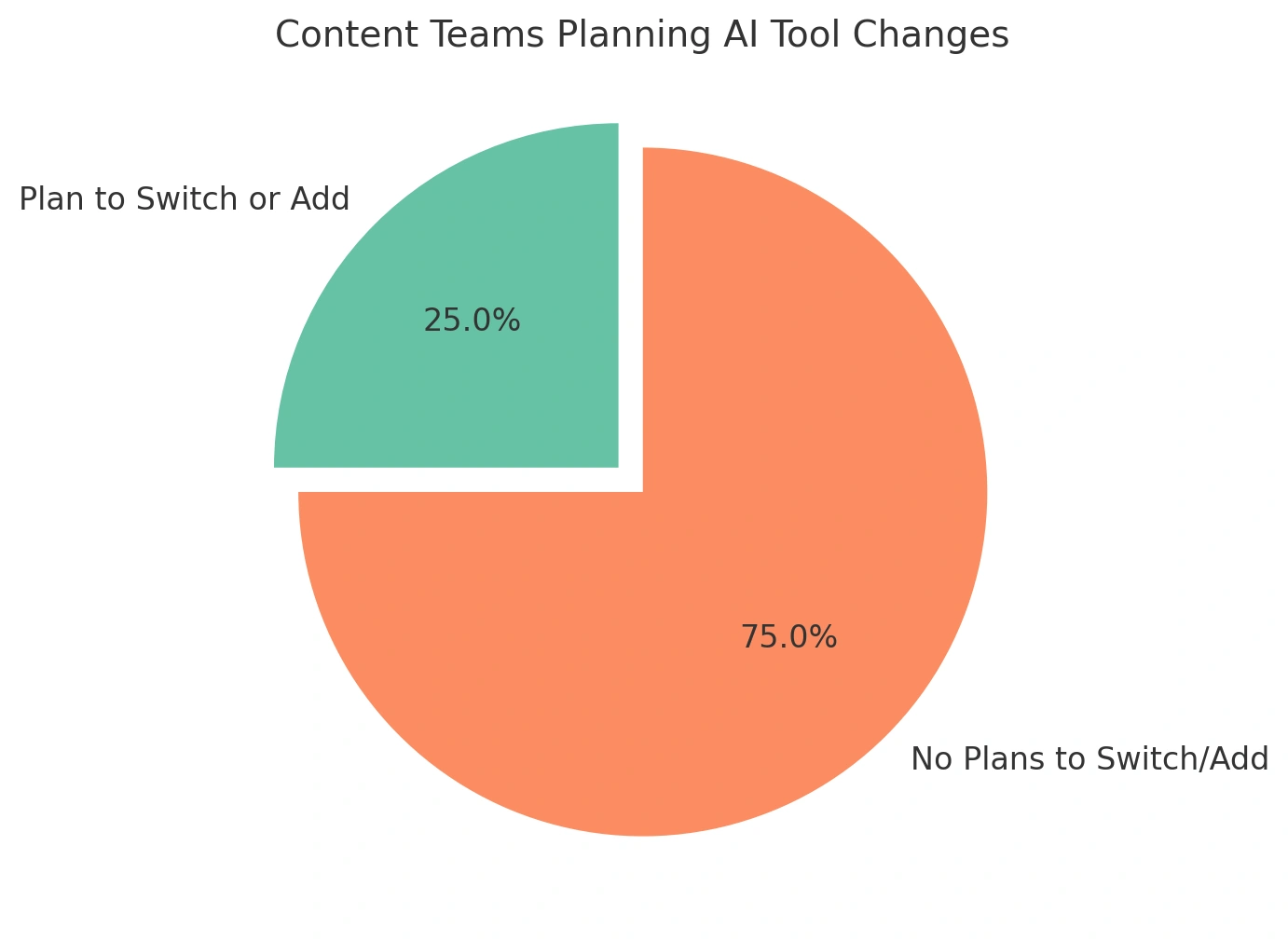
56% of respondents mention using a second AI tool (beyond their primary) for specialized tasks like keyword clustering or headline A/B testing.
8% of AI content creators specifically use voice-enabled AI tools (e.g., voice transcription + AI rewriting) to speed up first drafts.
85% of marketers report a high satisfaction score with their primary AI writing tool, referring to ease of use and time saved as top benefits.
AI site crawlers can identify broken links and indexing issues 25% more effectively than standard SEO crawlers.
Only 30% of enterprise websites have fully adopted AI-based schema generation, yet they experience 2.2x higher CTRs on average.
Machine-learning SEO audits can detect hidden technical issues (like server response anomalies) 50% faster than manual reviews.
AI-driven SEO tests (running simultaneous variations) can reduce the time needed for A/B testing from 4 weeks to 1 week.
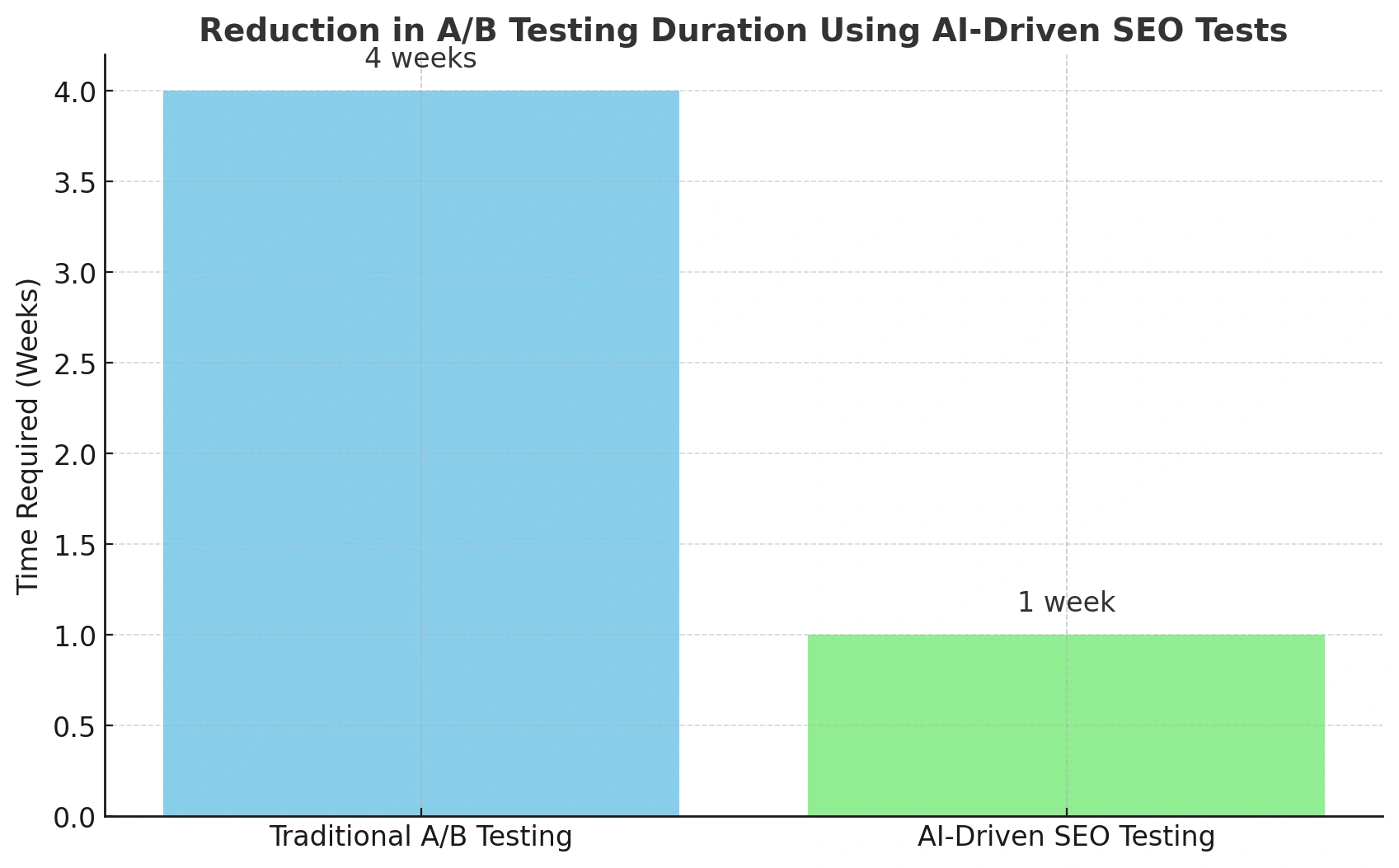
87% of technical SEOs rely on AI to handle large-scale data analysis, resulting in more precise error detection.
Algorithmic penalty detection using AI can predict potential ranking drops up to 2 weeks before they occur.
Clustering machine learning models can group related pages and highlight redundant or cannibalizing content, saving 15% in resources.
7 out of 10 major search engines (beyond Google) use AI-based ranking signals that prioritize user engagement metrics.
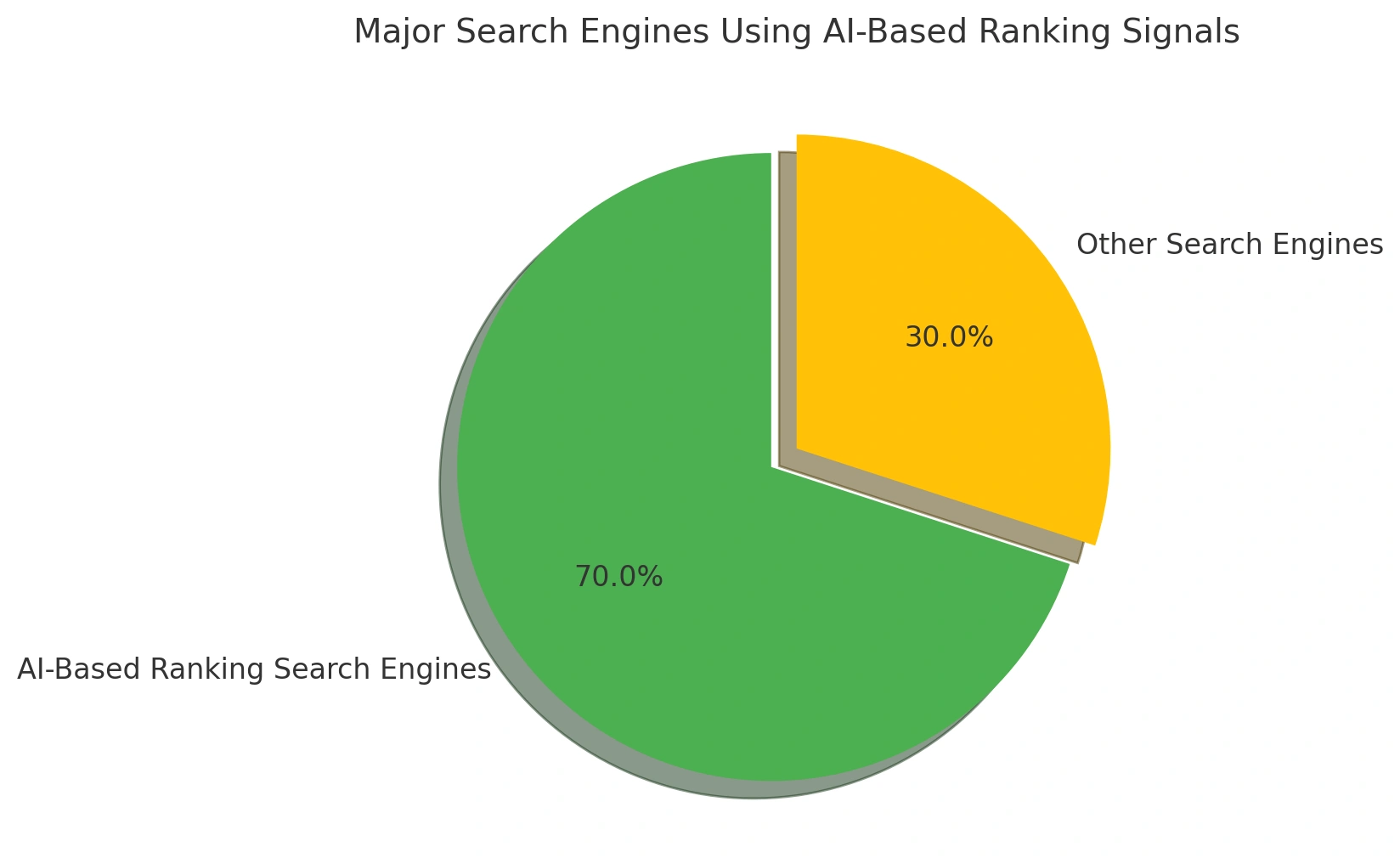
Automated AI sitemaps update 300% faster than conventional CMS-based sitemaps, ensuring quicker indexing of new content.
AI-based log file analysis can reveal crawling inefficiencies that result in a 10%+ indexing delay for large news sites.
Real-time AI SEO dashboards improve the response rate to technical errors by 45%, boosting overall uptime.
Advanced AI SEO reporting can evaluate site performance daily, providing immediate alerts on ranking volatility.
AI-based duplicate content detection has a 98% accuracy rate, ensuring minimal risk of unintentional plagiarism or internal overlap.
82% of retail websites employ AI-driven product recommendations, increasing organic landing page engagement by 30%.
Personalized content blocks powered by AI are linked to a 2.1x increase in returning visitors over six months.
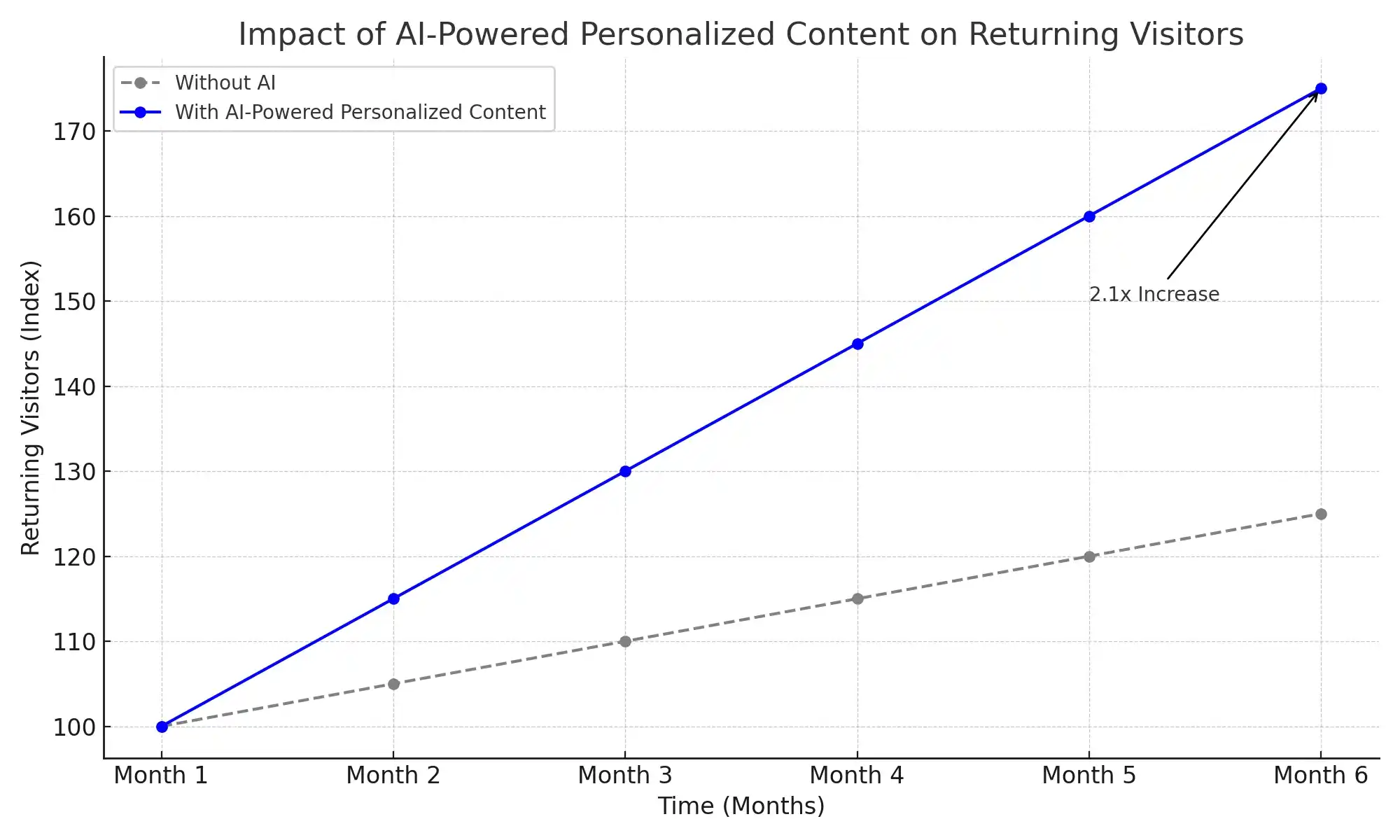
Behavioral AI can predict user exits with 75% accuracy, prompting on-page adjustments to retain visitors longer.
Voice-assistant optimizations using AI modeling account for 18% of total queries for top consumer brands.
Personalized on-site search guided by AI improves average session duration by 24% across enterprise eCommerce sites.
AI-churn prediction models help reduce user bounce rates by 15%, suggesting content modifications in real-time.
Dynamic AI chatbots on product pages have been credited with a 12% uplift in SEO-related conversions.
80% of SEO experts say user engagement signals (dwell time, bounce, CTR) are being better optimized through AI-driven personalization.
75% of top-performing websites actively use AI to customize content based on real-time user intent signals.
AI-based session recordings can identify micro-user behaviors that lead to a 10% improvement in site navigational structure.
Deep personalization initiatives using AI can boost repeat organic traffic by 33% in a year.
Adaptive UX designs (auto-adjusting layout by AI) have cut mobile bounce rates by 40% for several online publishers.
AI-driven internal search with auto-suggestions shortens the path to content discovery, raising organic page visits by 21%.
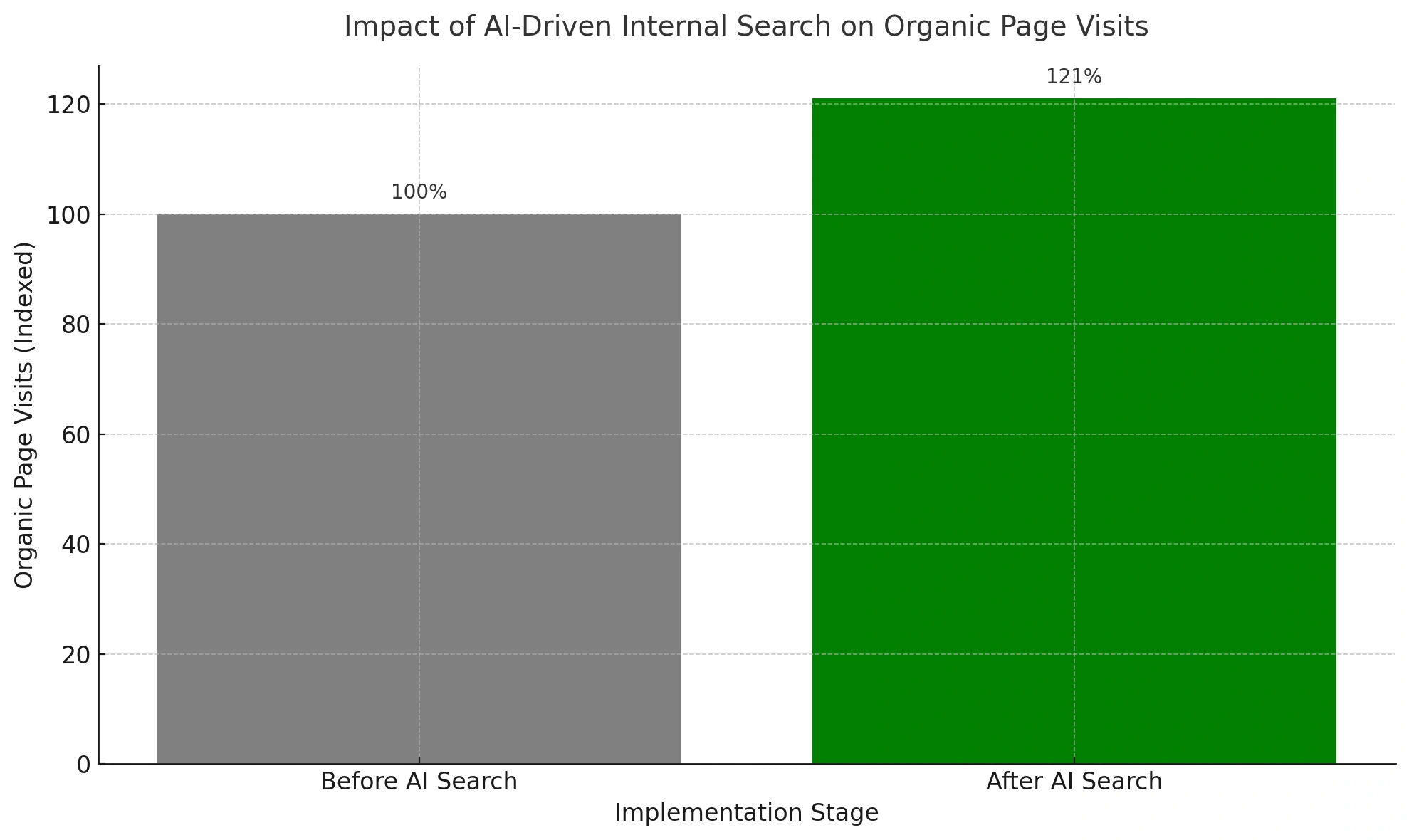
ChatGPT-like integrations within websites see 2.5x more user interactions compared to basic FAQ pages.
AI-based content curation for returning users can result in a 20% rise in on-page click-through rates.
The top 10 AI SEO tools collectively analyze an estimated 5 billion pages monthly, giving them unprecedented data insights.
47% of enterprise-level marketers switched to an all-in-one AI SEO suite within the last year to streamline their workflow.
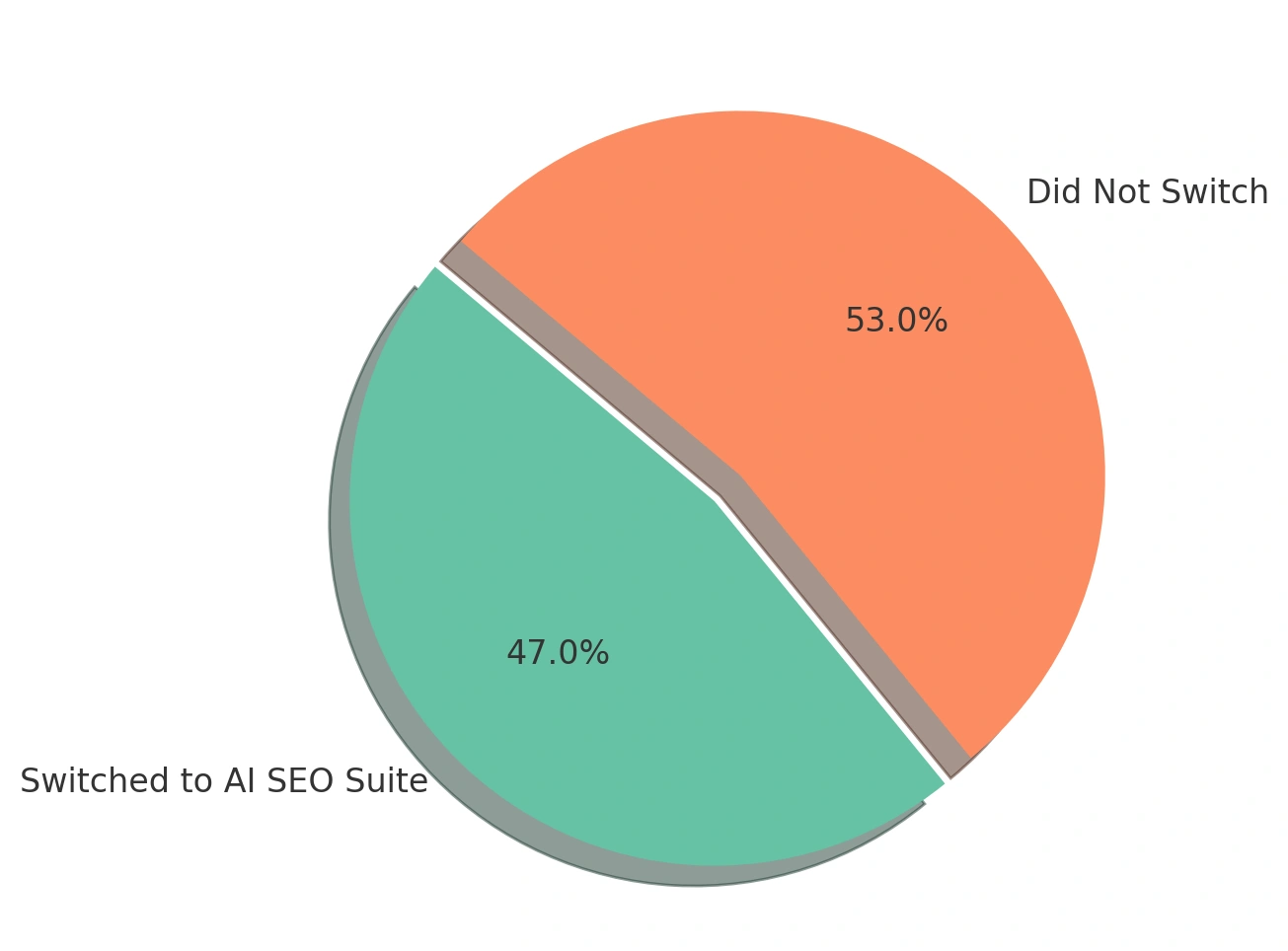
80% of SEO tools now include some AI features, ranging from content scoring to SERP volatility monitoring.
AI-powered rank trackers can detect daily SERP fluctuations 3 hours earlier than conventional rank-tracking tools.
42% of agencies plan to reduce reliance on standalone tools in favor of integrated AI-powered platforms by next quarter.
Most popular AI SEO platforms offer a projected 8:1 ROI for brands that use their advanced features regularly.
AI-driven competitor analysis shortens the time to understand rivals’ backlink profiles by 60%.
7 in 10 digital marketing teams claim AI-based SEO tools have reduced their manual reporting tasks by over 50%.
Conversational AI chatbots integrated into SEO platforms simplify the training of junior SEOs by 35%.
Real-time SEO analytics dashboards using AI have a 95% satisfaction rate among marketing executives.
AI-based forecasting can predict keyword performance for up to 6 months with an accuracy rate of around 78%.
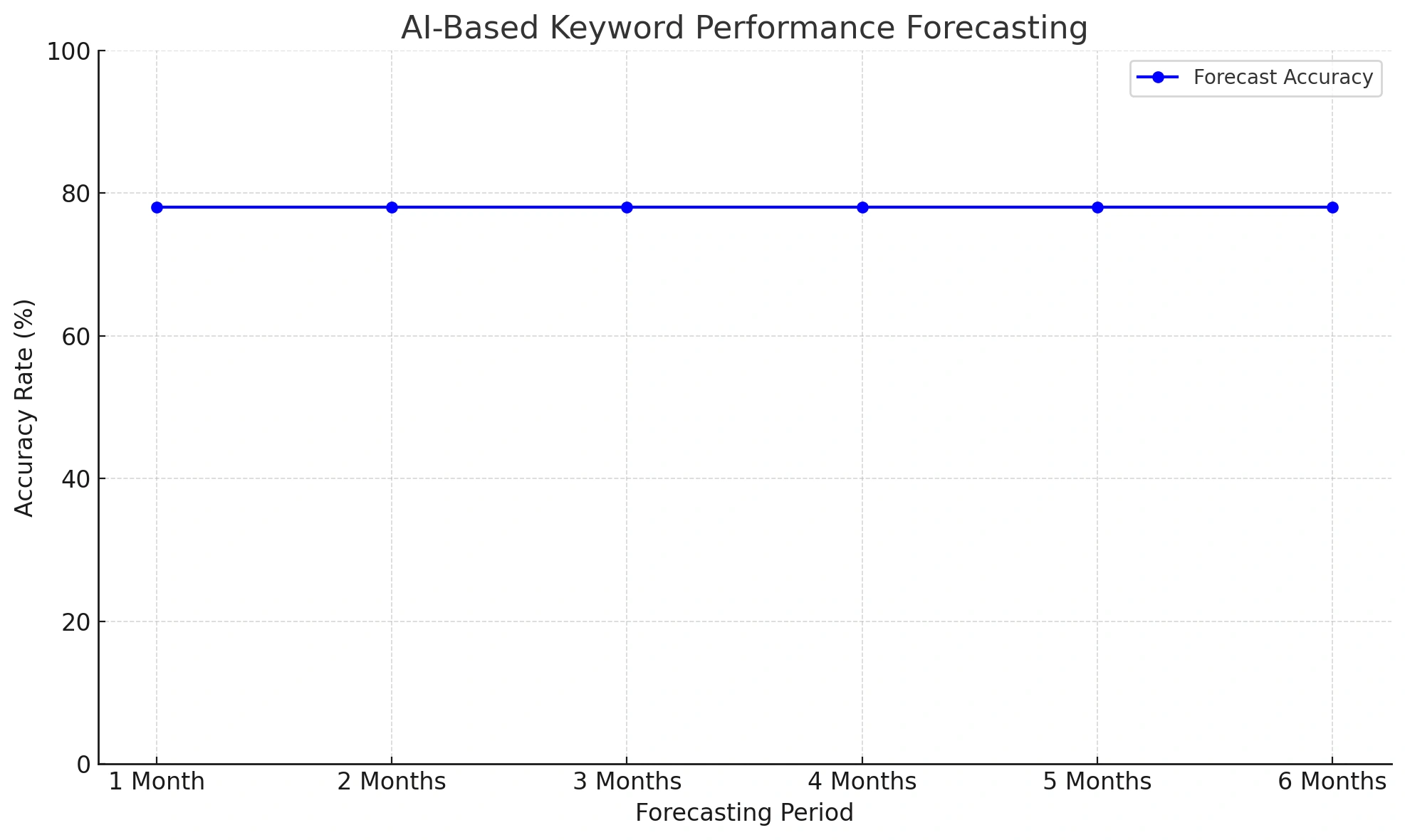
Advanced AI link-building platforms can automatically evaluate link quality, saving teams 40+ hours/month.
90% of marketing leaders who invest heavily in AI SEO solutions say it frees them to focus on higher-level strategy.
5 in 10 SEO agencies have replaced their legacy analytics tools with AI-based solutions in the past six months.
AI content generation capabilities within SEO suites are used by 68% of mid-sized businesses to scale blogging efforts.
By 2030, 95% of online searches could be influenced by AI-driven personalization, making “one-size-fits-all” SEO obsolete.
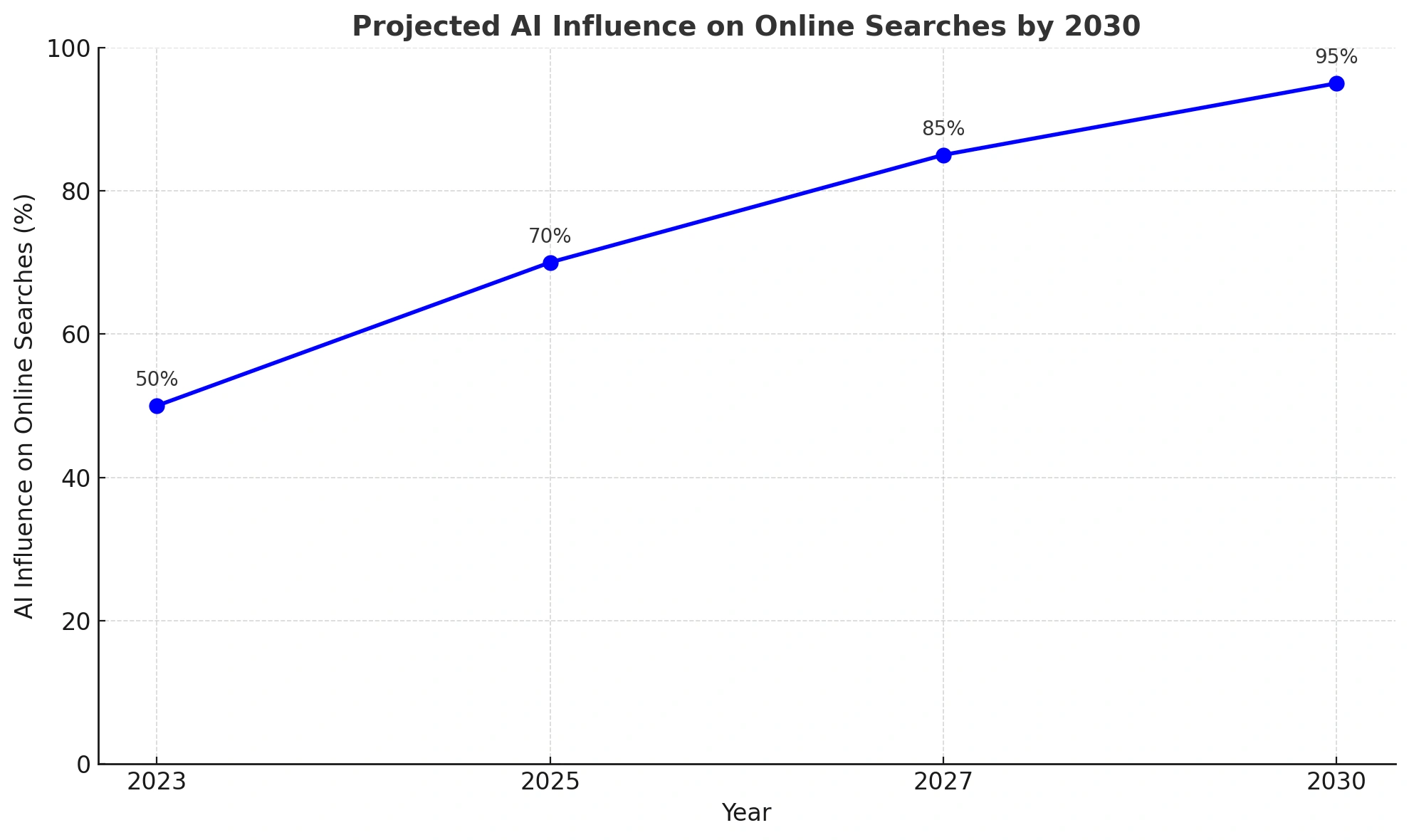
AI SEO chat interfaces will power an estimated 60% of brand interactions, replacing traditional forms of site navigation.
Bio-metric data (eye tracking, face recognition) integrated with AI could shape SERP rankings based on real-time emotional responses.
Predictive SEO (automatically adjusting content ahead of algorithm updates) will become a standard practice by 2027.
Augmented reality (AR) search integrated with AI is expected to account for 15% of queries by 2028, especially in retail.
AI-driven voice commerce could influence 30% of all search-related purchases within five years.
Sentiment analysis will evolve to weigh user satisfaction signals more heavily, potentially influencing 20% of ranking factors by 2030.
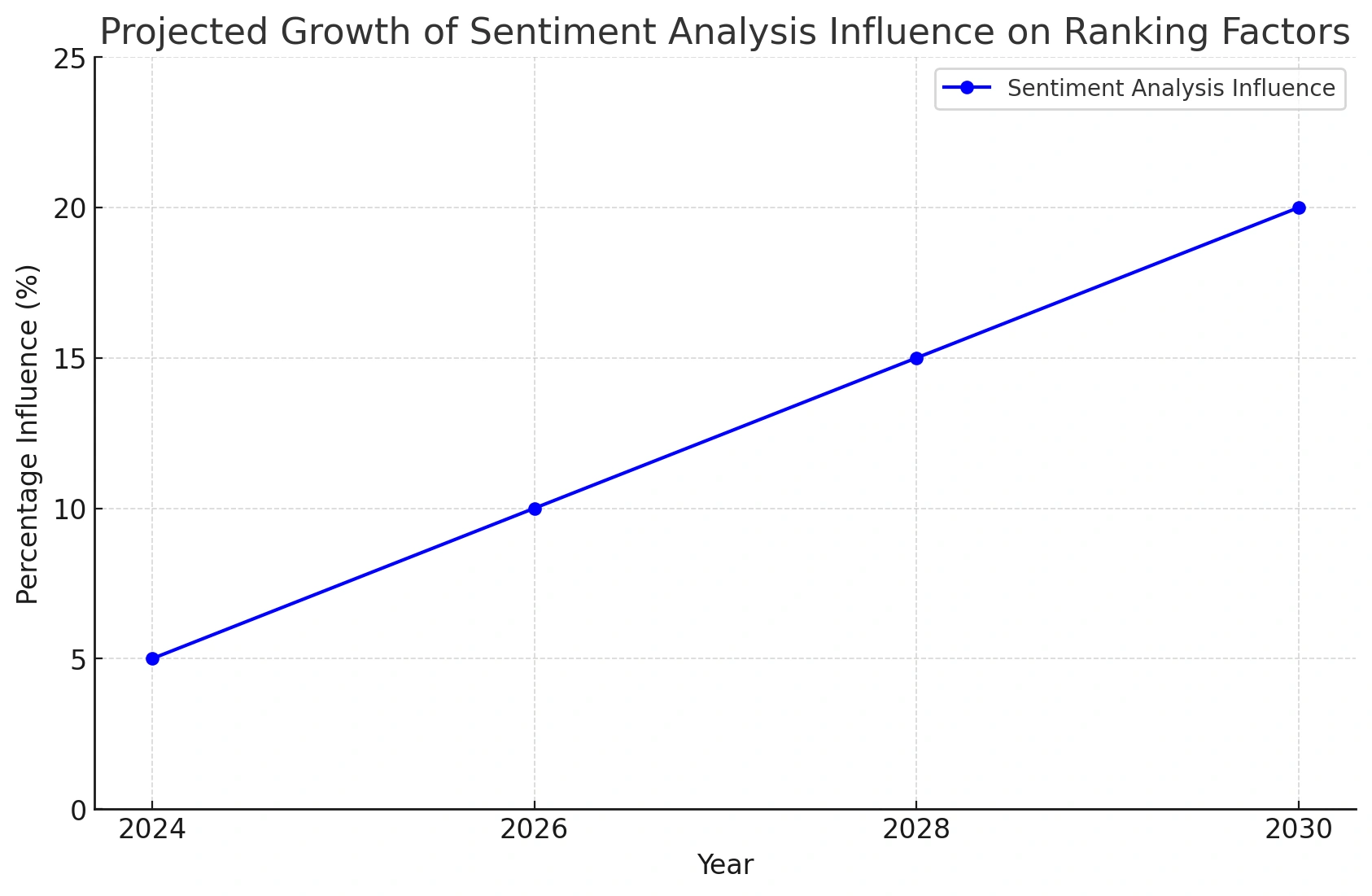
Automated code optimization via AI could reduce page-load times by 50%, dramatically affecting core web vitals.
Personal AI “search assistants” might become embedded in browsers, altering how sites compete for organic visibility.
Natural language generation for SEO could expand beyond text, with AI-driven video scripts rising 300% by 2029.
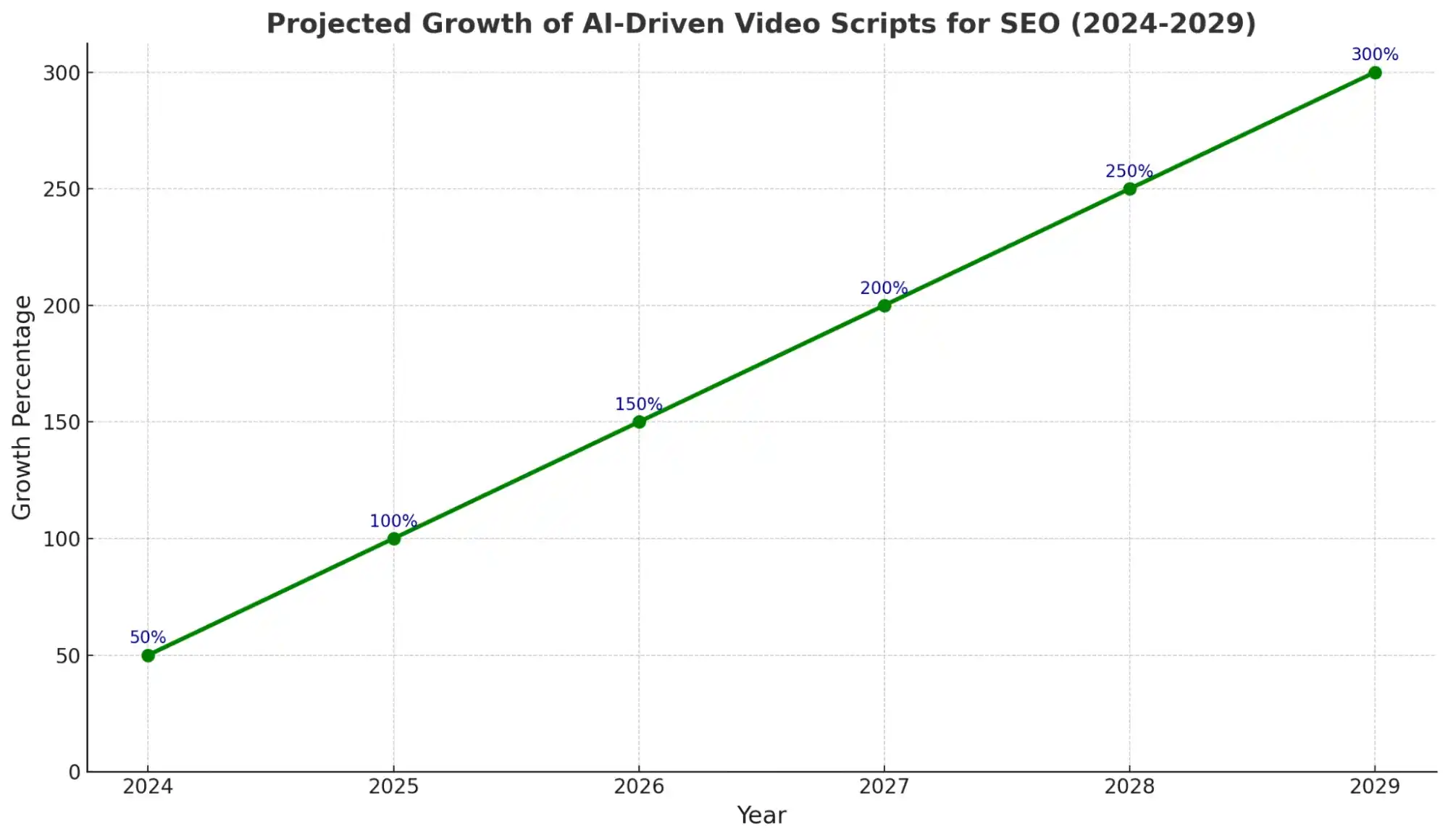
AI-based voice cluster analysis will help brands identify “conversational gaps,” improving voice search optimization by 40%.
AI-driven sentiment gating (positive vs. negative brand mentions) will see widespread adoption, shaping reputation-based SEO signals.
Quantum computing integrations might allow next-gen AI SEO tools to run 100 times faster, analyzing trillions of data points in seconds.
By 2035, AI is forecasted to handle all routine SEO tasks, with human roles shifting to strategic oversight and creative problem-solving.